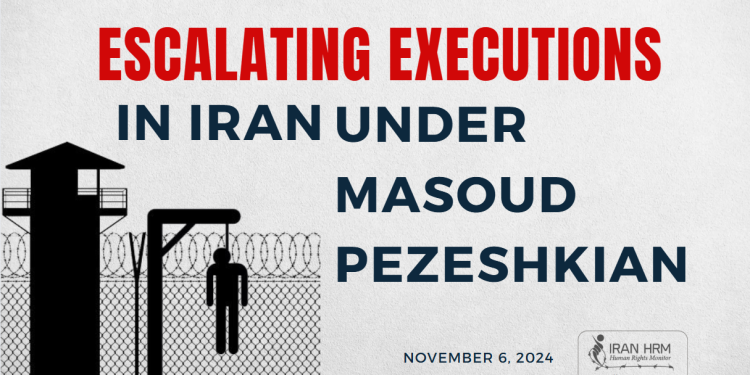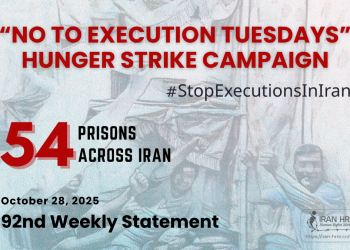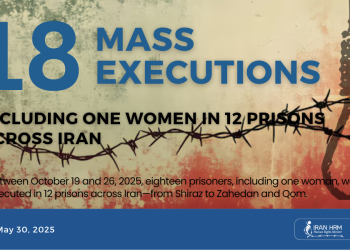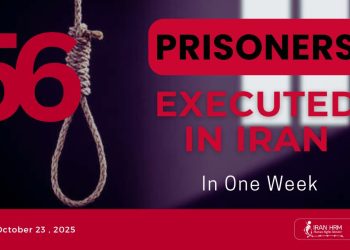Iran Human Rights Monitor (Iran HRM) has documented a significant increase in executions within Iran during October 2024, a month in which the Iranian judiciary executed 178 individuals – the highest monthly figure in over two decades. This rise raises serious concerns about Iran’s human rights practices and suggests an intensification of capital punishment under Pezeshkian’s administration.
Pezeshkian, who assumed office amid rising public discontent, now presides over a period marked by an escalated use of the death penalty. In October alone, executions averaged nearly one every four hours, illustrating an alarming trend in decades. Human rights advocates are concerned about the impact of these practices on the broader society.

At the 79th session of the UN General Assembly’s Third Committee, several countries voiced their concern regarding Iran’s human rights record. Special Rapporteur Mai Sato presented a critical overview of Iran’s situation, noting that while international sanctions can have adverse impacts, they do not excuse reported rights abuses. Her report highlighted the use of the death penalty disproportionately affecting ethnic and religious minorities and juvenile offenders. She also underscored the need to protect women’s rights, urging an end to punishment for non-compliance with mandatory hijab laws.
A large portion of those executed in October faced drug-related charges. However, observers caution that this focus may reflect broader societal repression, particularly against marginalized communities. Among those executed were five women and numerous individuals from ethnic minority groups, including Baloch and Kurdish populations. The execution of a juvenile offender, Mehdi Barahoui, who was 17 at the time of his alleged offense, highlights Iran’s deviation from international human rights standards, such as those outlined in the Convention on the Rights of the Child. Such actions during Pezeshkian’s presidency have drawn widespread condemnation from human rights organizations globally.
Reports indicate that many executions in October were carried out without public announcement, contributing to a climate of secrecy and fear. This media blackout not only obscures the reality of capital punishment in Iran but also raises concerns about the regime’s accountability and transparency.
Pezeshkian has been described by some as a moderate figure, yet human rights organizations highlight the continuing repression under his administration. The escalation in executions during his tenure underscores concerns about Iran’s human rights trajectory. It remains essential for the international community to monitor these developments and advocate for the rights and dignity of all individuals within the country.
As the situation evolves, it is imperative that efforts to document and expose these human rights abuses continue, ensuring that the voices of the victims are heard and justice is pursued.







